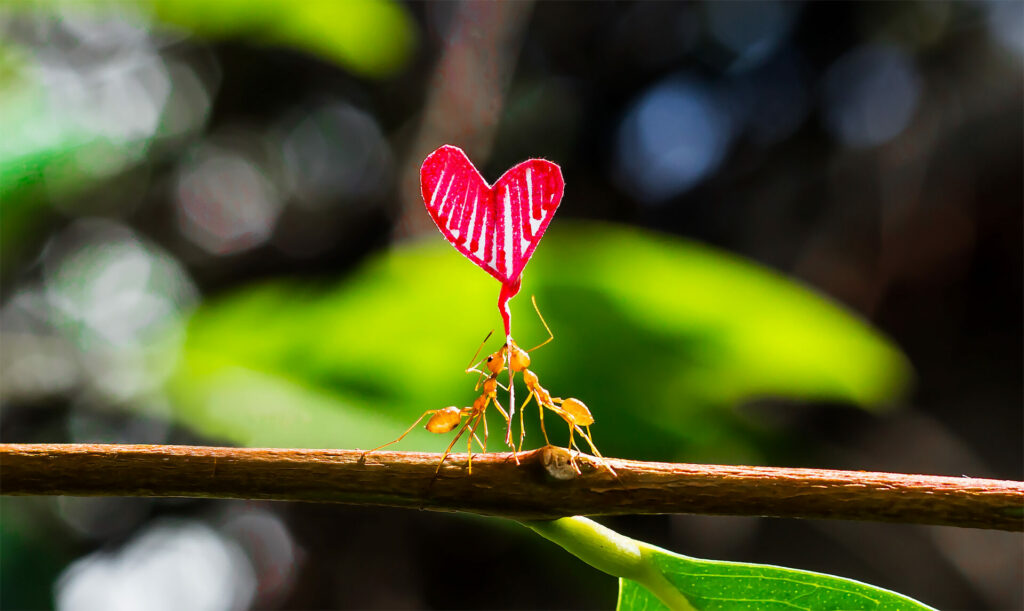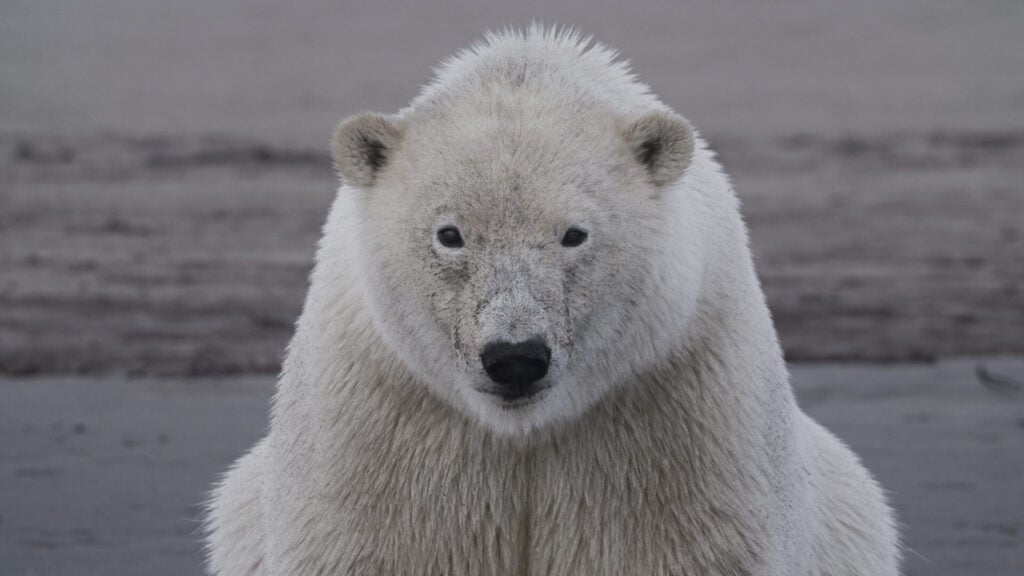Eating pork has long been associated with the exploitation of pigs – one of the planet’s most intelligent yet industrialised animals. But there’s another innocent creature embroiled in the mass production of sausages, pork chops and bacon: horses and the race for red gold. Thousands of mares are being abused in Iceland, Russia, Mongolia, China, Argentina and Uruguay to make farm animals ovulate on command so they produce more offspring to feed the population’s appetite for red meat.
Systematically impregnated on barbaric ‘vampire farms’, the mares’ precious blood is drained for a hormone called Pregnant Mare Serum Gonadotropin (PMSG). In its concentrated form, 100 grams of PMSG is worth far more than gold – around £1 million (AED 4.5m) compared to just £5,000 (AED 22,000) for a gold bar of the same weight – to the pharmaceutical industry, who convert it into a powder that’s used to artificially boost the fertility of livestock like pigs, sheep and cattle.
Drained Of All Dignity
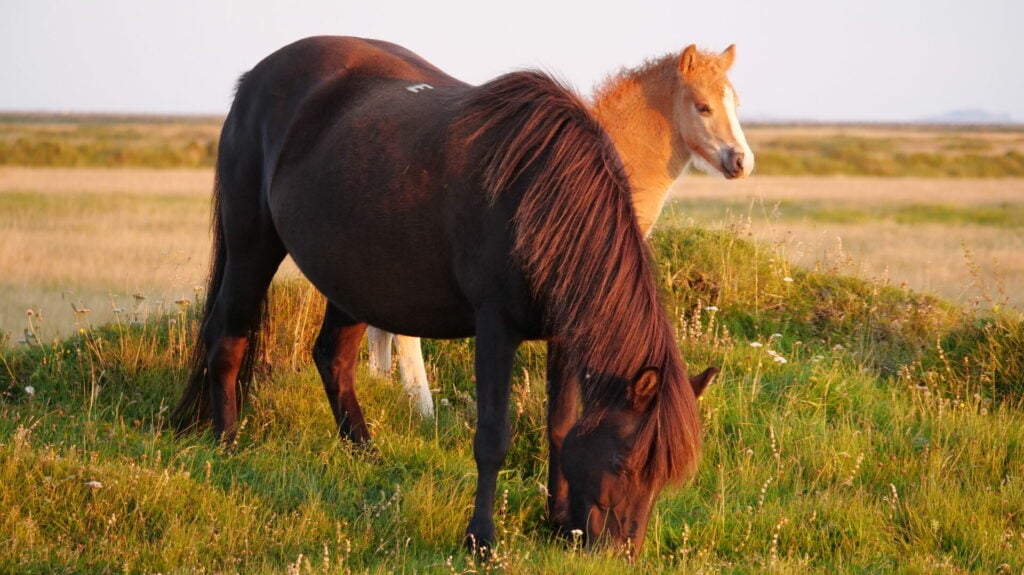
The world’s biggest producer of PMSG is South America where some 10,000 semi-wild mares lead joyless lives. They’re bled as young as three years old in Uruguay’s two main blood farms: Biomega and La Paloma. Corralled into pitifully small pens and held against their will, the pregnant mares are stabbed in the neck with large-bore cannulas that draw up to ten litres of blood in 10 minutes during the 40th and 140th day of their gestation. It’s estimated that one in four mares die in the process; the survivors are left with injuries and ailing health as a result of the cruel procedure.
‘At Syntex [a pharmaceutical laboratory and blood farm in Argentina] iron hooks were used to move the farm’s [2,500] frightened mares’ into the restraint boxes,’ Sabrina Gurtner, Project Manager of Animal Welfare Foundation (AWF) and its Swiss partner organisation: Tierschutzbund Zurich (TSB) tells The Ethicalist. Together with animal welfare organisation Animals Angels USA (AA), the veterinary-led charity has been investigating blood farms in South America for the past seven years.
‘Injured, sick and emaciated mares do not receive any veterinary treatment but are left unattended on vast pastures’
Deeply disturbing footage taken by the team in 2018, on both Biomega and Syntex farms, revealed the horses were stabbed in the genitals and beaten with fists, sticks and ropes to forcibly draw blood, the red gold, from them. The misery of these mares doesn’t end in the restraint pens.
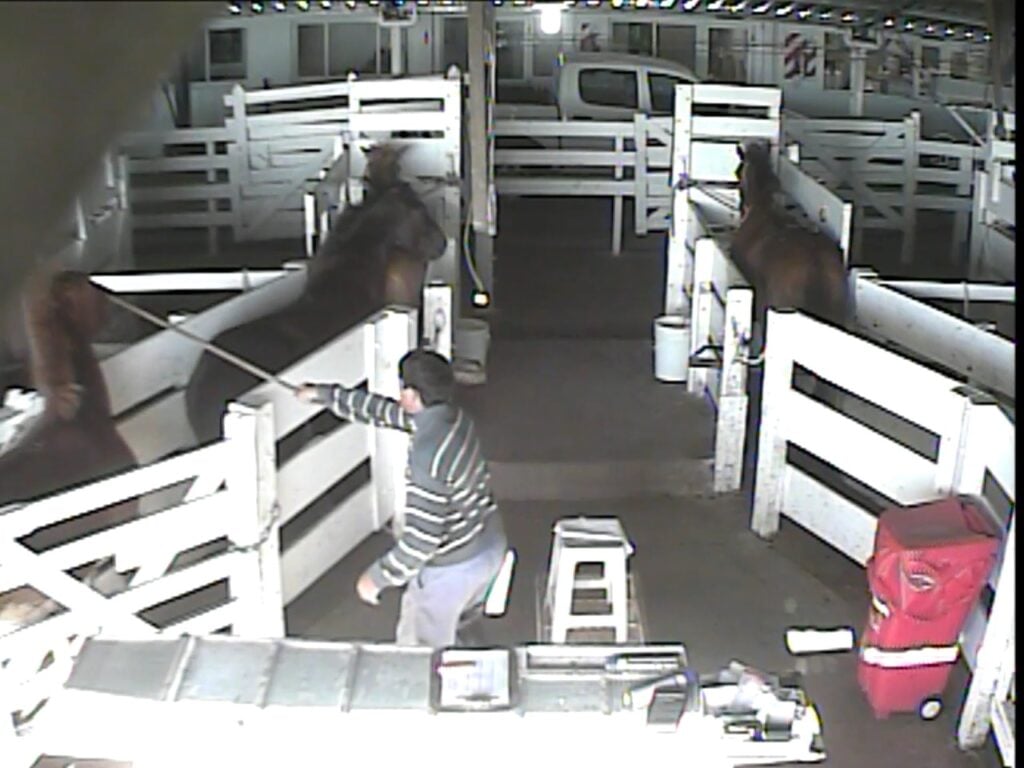

The blood loss can lead to deficiency disorders like anemia, or worse; hypovolemic shock (when rapid blood loss causes a medical emergency). As for the untreated wounds sustained from the blood extraction and abuse, they regularly become infected. ‘Injured, sick and emaciated mares do not receive any veterinary treatment but are left unattended on vast pastures,’ Gurtner reveals.
According to AWF and TSB, two Uruguayan blood farmers admitted to deliberately underfeeding their horses because malnourished mares produce more concentrated red gold, the PMSG hormone.
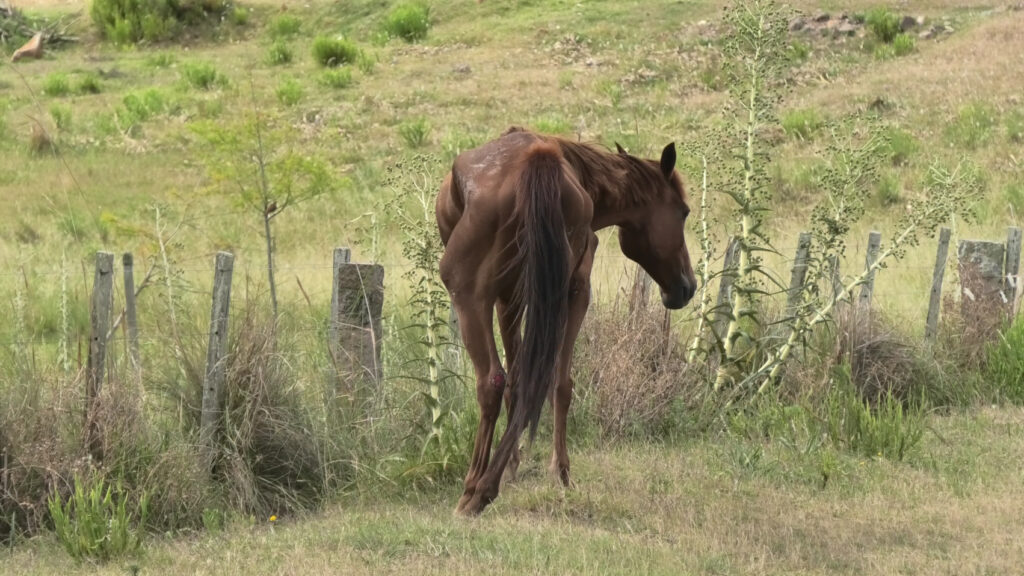
In the ultimate act of indignity, after being bled dry over 12 twelve long weeks, the mares foetuses are aborted. In Argentina, abortions are done by injection while ‘In Uruguay, [it’s] done manually by tearing of the foetal membranes by hand,’ Gurtner explains. No longer serving any use, sterile mares are sent to slaughter, while the suffering continues for their fertile sisters.
According to AWF and TSB, two Uruguayan blood farmers admitted to deliberately underfeeding their horses because malnourished mares produce more concentrated red gold, the PMSG hormone. In a return visit to the Biomega farm, located near the city of Melo in north-eastern Uruguay, in 2021, the charity discovered severely emaciated blood mares – some with bloodied, unhealed wounds – grazing on nutrient-poor grass, with no additional feed, access to clean water or shade from the midday sun.
An estimated eight out of ten German pig farms use the horse hormone, while in the UK, some British farmers inject it into sheep and cows as well to induce superovulation in order to yield larger litters for slaughter.
Profiting From Red Gold
Sadly, the animal cruelty doesn’t end with the horses though. Few people realise the equine abuse involved in intensive farming. Part two of PMSG’s unsavoury story unfolds 6,000 miles away in European pig pens, where captive sows are forced to undergo back-to-back pregnancies.
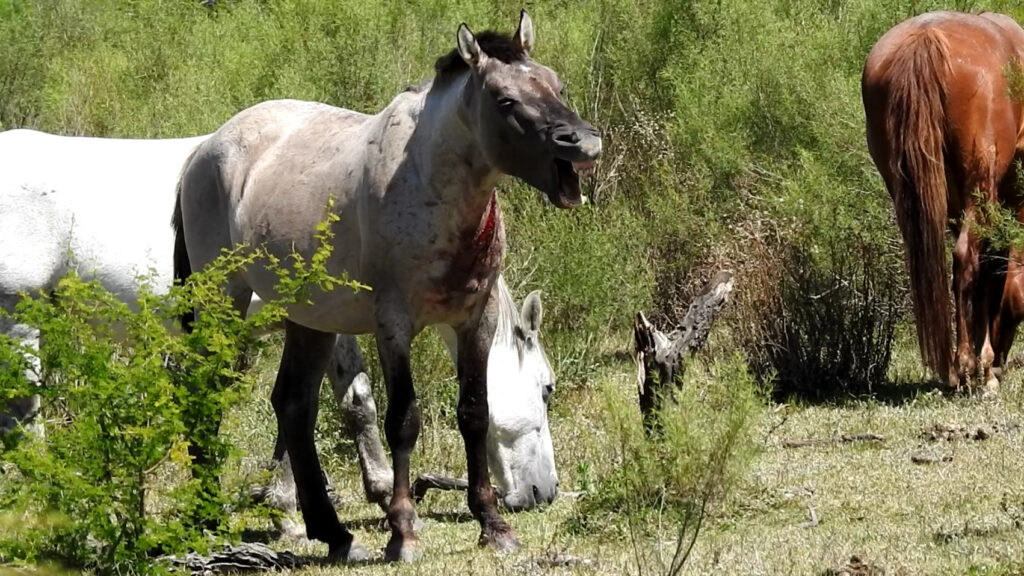
Factory farmers push the fertility of mother pigs beyond their natural capacity by drugging them with PMSG. The hormone works by ‘tricking’ their bodies into producing larger litters of piglets and synchronises when the sows give birth, maximising agricultural efficiency to turn out more meat from one sow. In some cases, it brings females back into season just a few days after labour, giving them no time to recuperate between pregnancies. The dangerously legal practice – which puts profits before animal welfare – can result in piglets being born either dead or malnourished, with the exhausted sow struggling to feed them all.
The stark truth is, every time someone grills a sausage or bites into a ham sandwich, they’re supporting these barbaric blood farms
An estimated eight out of ten German pig farms use the horse hormone, while in the UK, some British farmers – who can buy PMSG products on prescription from registered vets – inject it into sheep and cows as well to induce superovulation in order to yield larger litters for slaughter.
Iceland’s Blood-curdling Secret
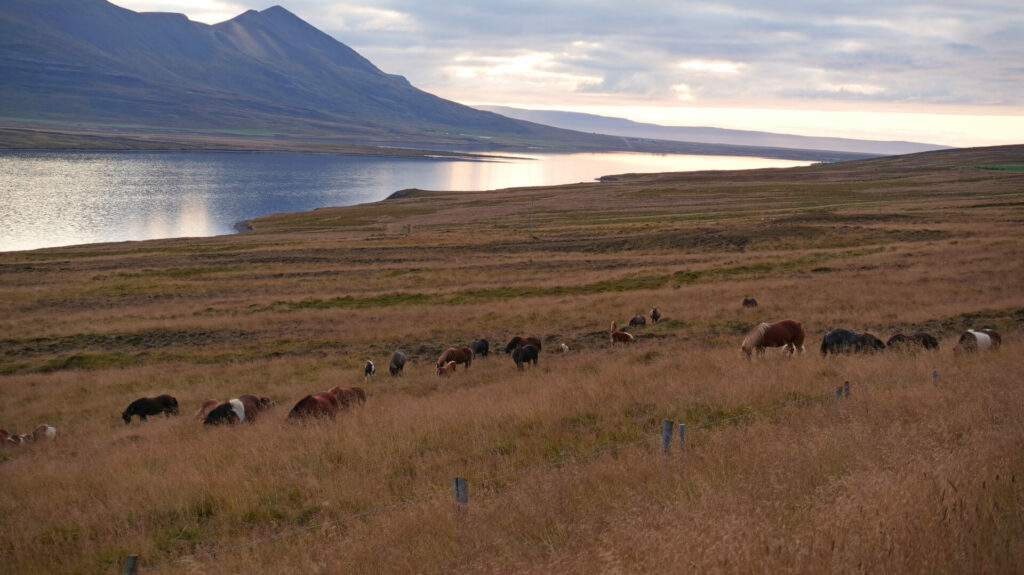
Better known for its steaming lava fields, volcanic beaches and gushing waterfalls, the seemingly idyllic landscapes of Iceland are the last place you’d expect animal abuse to run rife. Around 5,400 semi-wild Icelandic horses are bred for the sole purpose of being artificially impregnated in the land of fire and ice’s vampire farms. It may be the only European country where the red gold is harvested, but by simply importing and authorising the use of PMSG, the continent is complicit in the cruel practice.
What began as a side hustle for horse farms here in 1979, has evolved into a lucrative line of work for around 119 Icelandic farmers, who make roughly Dhs 230,400 a year harvesting PMSG from July until October. Most are either owned outright or subcontracted by Icelandic biotech giant Isteka, who deal in a staggering 170 tonnes of PMSG a year according to Animal Welfare Iceland (AWI). And disconcertingly, the number of blood farms in Iceland has tripled over the last decade, such is the lure of red gold versus less profitable traditional farming.
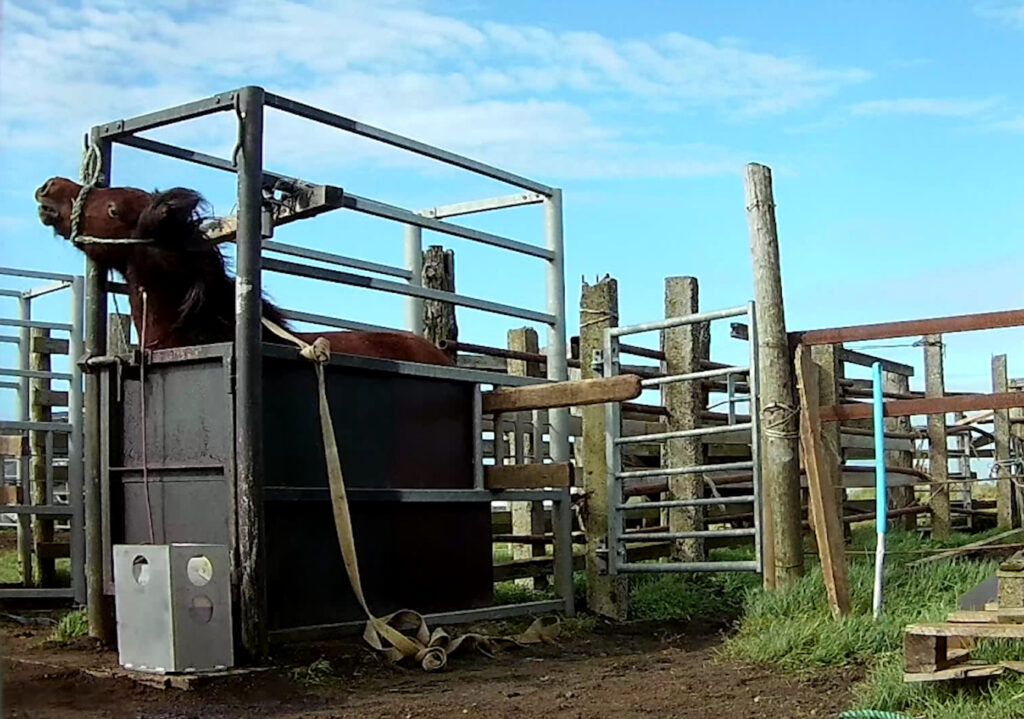
In 2021, the Animal Welfare Foundation released videos taken on Icelandic blood farms showing workers violently handling the mares, which shocked a nation when they went viral. A national survey conducted last December reveals the majority of Icelanders are vehemently opposed to the brutal practice.
Vice Chairman of Animal Welfare Iceland, Rósa Líf Darradóttir says that 15-20 per cent of the mares’ total blood volume is taken in one weekly extraction – four times the recommended amount according to international guidelines. ‘The vets do not use sterile needles, they use the same needle repeatedly,’ the horse breeder and medical doctor adds. The charity’s distressing footage also show mares’ being mistreated by often incompetent workers in Iceland’s blood farms.
This summer, regulations on Icelandic blood mare farms were supposedly tightened, but Líf Darradóttir claims ‘blood volume and frequency of bleedings is unchanged,’ continuing ‘the Icelandic government is reluctant to ban the practice as it turns a huge financial profit. We also need the EU Commission to stop the import of PMSG [which is licensed for use in all EU Member States. European countries].’
Legislative Loopholes
Although the European Parliament called for an EU-wide ban on importing the hormone in 2021, the situation remains the same. In October this year, 14 animal welfare organisations from 14 countries reproached the EU Commission for its inaction over red gold.
At present, Europe and the UK don’t require farmers to record their use of the hormone, nor do they enforce limits on the amount of blood drawn from each mare. And despite four out of five European pharmaceutical companies severing ties with South American blood farms since their torturous practices were exposed by the press, in 2018, PMSG continues to be imported from the blacklisted continent in a new, processed form. Rebranded as ‘Fixplan,’ it’s already been approved for use in Ireland, Spain, Germany and France.
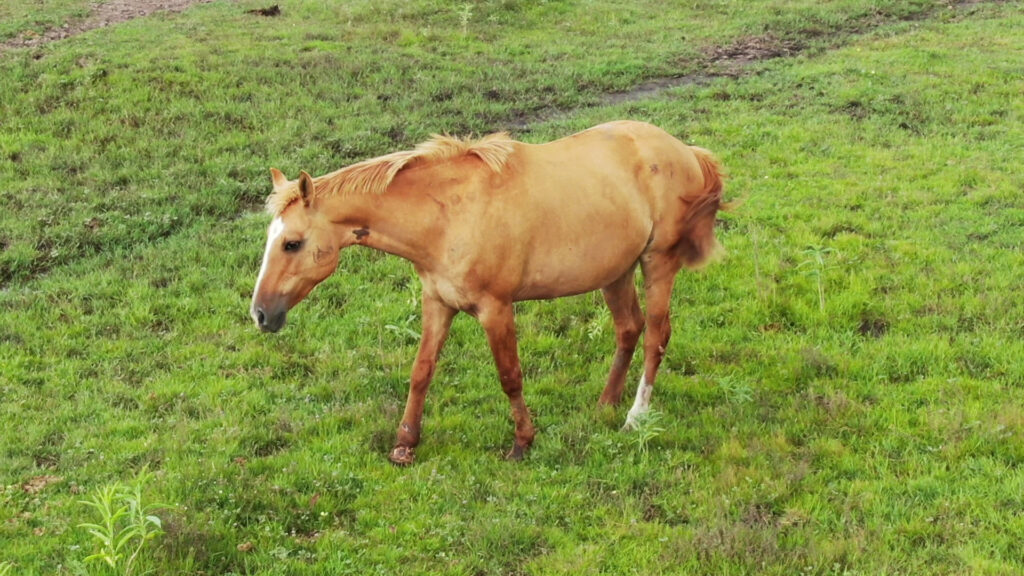
More countries need to follow the lead of Switzerland and its ethically-minded supermarkets, which phased-out PMSG from their meat supply chain in 2015. There’s no downplaying the link between the misery of these horses and the pork, lamb and beef cuts that fill supermarket shelves from Buenos Aires to Birmingham.
With synthetic, lab-made alternatives already developed, there’s no excuse for the ‘barbaric’ blood farms and the rush for red gold. ‘There are numerous alternatives available to breeders for the induction and synchronisation of oestrus in farmed animals, and their efficacy is very similar to PMSG,’ Gurtner points out.
For far too long PMSG-extraction has been used to justify commercial meat production, animal welfare charities claim, insisting it is time to hold the profit-hungry pharmaceutical giants and industrial pig farms accountable for their decades of animal abuse. ‘The ‘torture hormone’ truly is a befitting name for the product [PMSG],’ Líf Darradóttir says.
For more articles related to animal welfare visit our Change section





